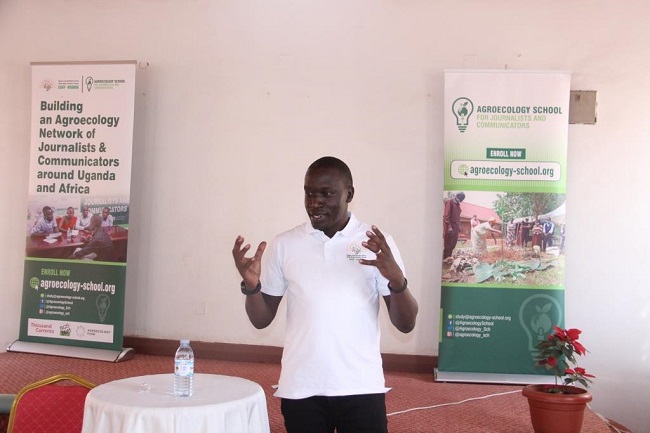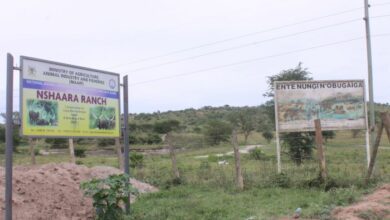Farmers tipped on agroecology to mitigate climatic change disruptions

MBARARA – The Eastern and Southern Africa Small Scale Farmers Forum [ESSAF Uganda] has appealed to small-scale Farmers in the country to embrace agroecology in a bid to contain some of the disruptive effects of climate change such as food insecurity and diseases.
Agroecology is the practice of combining trees and farming and demonstrates how food production and nature can co-exist, with food being grown without the use of agrochemicals.
While addressing journalists in Mbarara on Tuesday, Andrew Adem said most Ugandans have embraced the use of agrochemicals such as fertilisers, pesticides, and fungicides among others to increase food production, forgetting that such agrochemicals are dangerous to human health.
“Due to climate change, modern agriculture has taken over agroecology whereby pesticides and fertilisers are used by the farmers to produce high yields but the food produced using chemicals escalate diseases like cancer among others,” Adem said.
Instead of using chemicals like Dudu cyper, and Weed Master, and others, Adem advised farmers to plant pest and disease-resistant food crops and apply organic manure to produce high yields.
He said the need to make more money has made some people concentrate more on cash crops, thus advising farmers to grow organic food to address the challenge of food insecurity in some parts of the country.
‘Farmers that were producing food organically are now transitioning to chemical use because they want to improve their social welfare,” he said.
Adem said ESAFF Uganda has developed an application that helps to track the non-organic foods on the market, thus encouraging people to purchase the technology for easy food identification.
However, he said there are some food crops that cannot grow without the use of chemicals, such as tomatoes, and such crops should be avoided. “We have some traditional varieties of food that don’t need chemicals and we should grow them the more,” he said.
He urged journalists to sensitise and educate farmers on the need to embrace agroecology, arguing that modern agriculture is partly to blame for a rise in non-communicable diseases like cancer.
“As journalists go out there and work with farmers to promote the concept of agroecology. Using your media platforms, you can make a change by influencing people to adopt organic farming and get market for their produce,” he said.

According to Dr. Richard Wemesa, a lecturer of economics at Makerere University, climate change needs immediate solutions to enable communities to live sustainable lives.
“We need solutions in terms of say green finance to help communities live sustainable lives. Time will come when the soil will turn acidic to support plant growth anymore,” he said adding that there is a need for farmers to promote the biodiversity as they produce food.
ESAFF Uganda is the largest small-scale farmer-led advocacy movement in Uganda. ESAFF Uganda works to enhance the small-scale farmers’ ability to make informed decisions and participate meaningfully in development processes.
With a membership of 12,543 farmer groups with 384,056 individual small-scale farmers of which 67 per cent are women in 54 districts, ESAFF Uganda is also part of a bigger network of small-scale farmers in countries like South Sudan, Rwanda, Burundi, Kenya, Tanzania, Swaziland, Zambia, Zimbabwe, Malawi, South Africa, Lesotho, DR Congo, Madagascar, Seychelles and Mozambique.
https://thecooperator.news/esaff-trains-journalists-to-create-awareness-about-value-of-agroecology/
Buy your copy of thecooperator magazine from one of our country-wide vending points or an e-copy on emag.thecooperator.news







